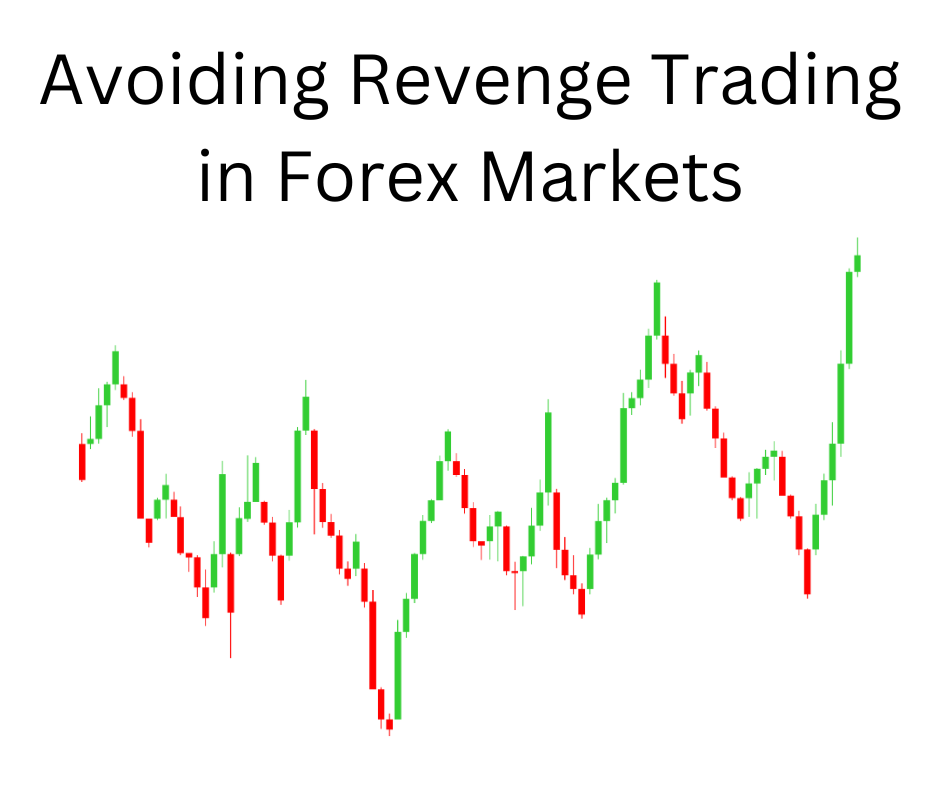As someone who’s been through the ups and downs of Forex trading, I want to share my experience and insights with you. In this ultimate guide, I’ll walk you through the concept of revenge trading, its dangers, and effective strategies to avoid falling into this pitfall.
The Concept of Revenge Trading and its Dangers
Revenge trading occurs when you, as a trader, make impulsive and irrational decisions in an attempt to recover previous losses. It’s a dangerous trap that can lead to even more significant losses, compromising your trading performance and psychological well-being.

Importance of Avoiding Revenge Trading in Forex Markets
In the volatile world of Forex markets, it’s crucial to avoid revenge trading. The nature of these markets makes them particularly susceptible to emotional decision-making, which can lead to devastating financial consequences. By recognizing the signs of revenge trading and employing strategies to avoid it, you’ll be better equipped to maintain a clear and rational mindset, ultimately improving your trading performance.
The Emotional Aspects of Forex Trading
Forex trading can be a rollercoaster of emotions, with the potential for substantial gains and losses. Emotions like fear, greed, and frustration can cloud your judgment, causing you to deviate from your trading plan. Learning to manage these emotions and maintain a disciplined approach is essential for long-term success in Forex markets.
What is Revenge Trading?
Before diving deeper into the psychology behind revenge trading, let’s first define the term.
The Psychology Behind Revenge Trading
Revenge trading is fueled by emotions, typically stemming from a previous loss. As a trader, you may experience frustration, anger, or disappointment after a losing trade. These emotions can lead you to abandon your trading strategy in an attempt to “get even” with the market, which often results in further losses.
The Dangers of Revenge Trading
Revenge trading can be incredibly harmful to both your finances and your mental well-being. By allowing emotions to dictate your trading decisions, you risk losing even more money, damaging your confidence, and undermining your overall trading performance.
Negative Effects of Revenge Trading on Traders
Revenge trading can have severe consequences for traders, which is why it’s essential to understand the dangers and learn how to avoid them.
Common Consequences of Revenge Trading
Some common consequences of revenge trading include:
- Financial losses: As you deviate from your trading plan, your losses may accumulate, causing significant financial harm.
- Emotional distress: The stress and frustration associated with revenge trading can lead to burnout, anxiety, and depression.
- Loss of confidence: As your trading performance declines, you may begin to doubt your abilities and lose confidence in your strategy.
Why Revenge Trading is a Bad Strategy in Forex Trading
Revenge trading is a bad strategy in Forex trading because it’s driven by emotions rather than logic and analysis. When you engage in revenge trading, you’re more likely to make impulsive decisions, which can lead to greater losses and a downward spiral of poor performance.
How to Identify Revenge Trading
To avoid revenge trading, you must first learn to identify its signs and triggers.
Signs of Revenge Trading
Some common signs of revenge trading include:
- Straying from your trading plan
- Overtrading or taking excessive risks
- A sudden change in trading style or strategy
Common Triggers of Revenge Trading
Revenge trading can be triggered by various factors, such as:
- A string of losses
- Market volatility or unexpected news events
- Personal stress or emotional instability
Strategies to Recognize and Address Revenge Trading
By recognizing these signs and triggers, you can take proactive steps to address them and prevent revenge trading.
Strategies to Avoid Revenge Trading
To prevent revenge trading, consider implementing the following best practices:
- Develop a solid trading plan and stick to it.
- Set realistic expectations and accept that losses are a part of trading.
- Establish risk management rules to protect your capital.
Tips for Maintaining Discipline and Emotional Control in Trading
Emotional control and discipline are crucial for successful trading. Here are some tips to help you stay on track:
- Practice mindfulness and meditation techniques to manage stress.
- Regularly review your trades and analyze your decision-making process.
- Surround yourself with a supportive network of traders and mentors.
Trading Mindset and Psychology
Your mindset and psychology play a significant role in your trading success.
The Importance of Mindset in Trading
A positive trading mindset is essential for navigating the challenges and uncertainties of the Forex market. By cultivating resilience and adaptability, you’ll be better prepared to handle setbacks and maintain your composure during periods of volatility.
Strategies for Developing a Positive Trading Mindset
To develop a positive trading mindset, consider implementing the following strategies:
- Focus on the process rather than the outcome.
- Embrace a growth mindset and view challenges as opportunities for improvement.
- Practice self-compassion and give yourself credit for your achievements.
Techniques for Managing Emotions While Trading
Managing emotions while trading is vital for maintaining a clear and rational perspective. Some techniques to help you manage your emotions include:
- Deep breathing exercises to reduce stress and anxiety.
- Time management techniques to create a balanced trading routine.
- Developing a pre-trade ritual to mentally prepare yourself for each trading session.
The Importance of Keeping a Trading Journal
A trading journal is an invaluable tool for monitoring your progress, identifying areas for improvement, and preventing revenge trading.
What to Include in a Trading Journal
Your trading journal should include the following information:
- Date and time of each trade.
- Entry and exit points, including stop loss and take profit levels.
- Rationale for each trade, including technical and fundamental analysis.
- Outcome of each trade, including profit or loss.
How to Use a Trading Journal to Prevent Revenge Trading
By regularly reviewing your trading journal, you can identify patterns and behaviors that may lead to revenge trading. By recognizing these tendencies, you can implement strategies to counteract them and maintain a disciplined approach.
The Importance of Time Management in Trading
Effective time management is essential for maintaining a balanced trading routine and avoiding emotional decision-making.
How to Manage Distractions While Trading
To minimize distractions while trading, consider implementing the following strategies:
- Create a dedicated trading workspace free from distractions.
- Establish a daily trading routine and schedule regular breaks.
- Use productivity tools and apps to stay organized and focused.
Overcoming Trading Slumps
Every trader experiences slumps at some point in their career. Learning how to overcome these challenges is crucial for long-term success.
The Importance of Taking a Break
Taking a break from trading can help you regain perspective, reassess your strategy, and return to the markets with a fresh mindset.
Staying Committed to Your Trading Plan
Staying committed to your trading plan is essential for navigating periods of difficulty. By consistently following your plan and avoiding emotional decision-making, you’ll be better equipped to handle setbacks and maintain a steady trading performance.
Tips for Staying Motivated
Staying motivated during challenging times can be difficult. Consider implementing the following tips to maintain your motivation:
- Set realistic goals and track your progress.
- Celebrate small victories and milestones.
- Connect with other traders to share experiences and learn from one another.
Summary
Revenge trading is a dangerous and emotionally-driven behavior that can lead to significant financial losses and emotional distress. By understanding the concept of revenge trading, recognizing its signs and triggers, and implementing effective strategies to avoid it, you’ll be better equipped to navigate the challenges of the Forex market.
Developing a positive trading mindset, maintaining emotional control, and staying committed to your trading plan are essential for long-term success. Utilize tools like a trading journal and time management techniques to monitor your progress and maintain a disciplined approach.
Remember to stay focused, embrace a growth mindset, and learn from setbacks. By doing so, you’ll not only avoid revenge trading but also continually improve your trading performance and overall well-being.
